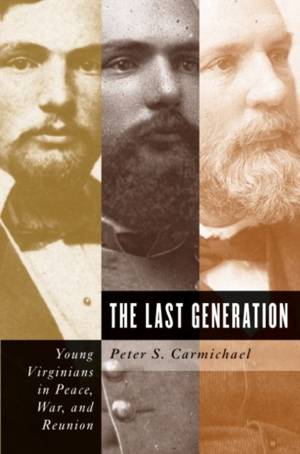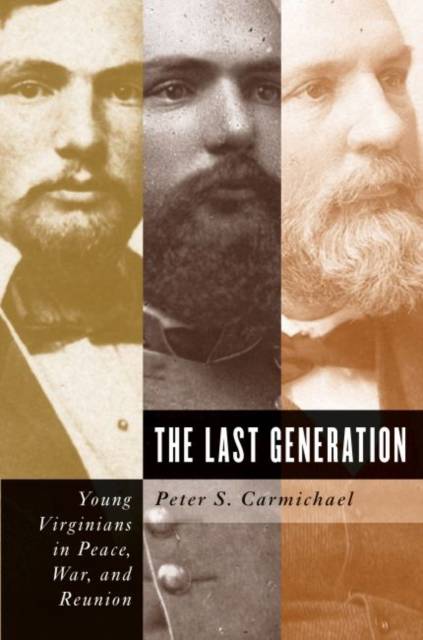
- Afhalen na 1 uur in een winkel met voorraad
- In januari gratis thuislevering in België
- Ruim aanbod met 7 miljoen producten
- Afhalen na 1 uur in een winkel met voorraad
- In januari gratis thuislevering in België
- Ruim aanbod met 7 miljoen producten
Omschrijving
Challenging the popular conception of Southern youth on the eve of the Civil War as intellectually lazy, violent, and dissipated, Peter S. Carmichael looks closely at the lives of more than one hundred young white men from Virginia's last generation to grow up with the institution of slavery. He finds them deeply engaged in the political, economic, and cultural forces of their time. Age, he concludes, created special concerns for young men who spent their formative years in the 1850s.
Before the Civil War, these young men thought long and hard about Virginia's place as a progressive slave society. They vigorously lobbied for disunion despite opposition from their elders, then served as officers in the Army of Northern Virginia as frontline negotiators with the nonslaveholding rank and file. After the war, however, they quickly shed their Confederate radicalism to pursue the political goals of home rule and New South economic development and reconciliation. Not until the turn of the century, when these men were nearing the ends of their lives, did the mythmaking and storytelling begin, and members of the last generation recast themselves once more as unreconstructed Rebels.
By examining the lives of members of this generation on personal as well as generational and cultural levels, Carmichael sheds new light on the formation and reformation of Southern identity during the turbulent last half of the nineteenth century.
Specificaties
Betrokkenen
- Auteur(s):
- Uitgeverij:
Inhoud
- Aantal bladzijden:
- 360
- Taal:
- Engels
- Reeks:
Eigenschappen
- Productcode (EAN):
- 9780807861851
- Verschijningsdatum:
- 1/09/2009
- Uitvoering:
- Paperback
- Formaat:
- Trade paperback (VS)
- Afmetingen:
- 146 mm x 227 mm
- Gewicht:
- 476 g

Alleen bij Standaard Boekhandel
Beoordelingen
We publiceren alleen reviews die voldoen aan de voorwaarden voor reviews. Bekijk onze voorwaarden voor reviews.









